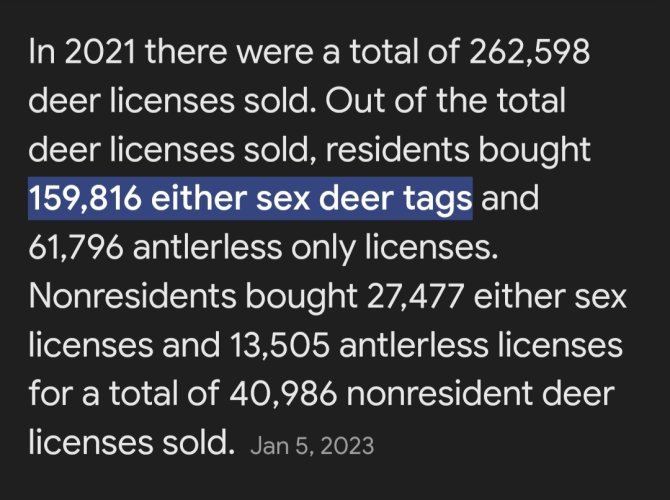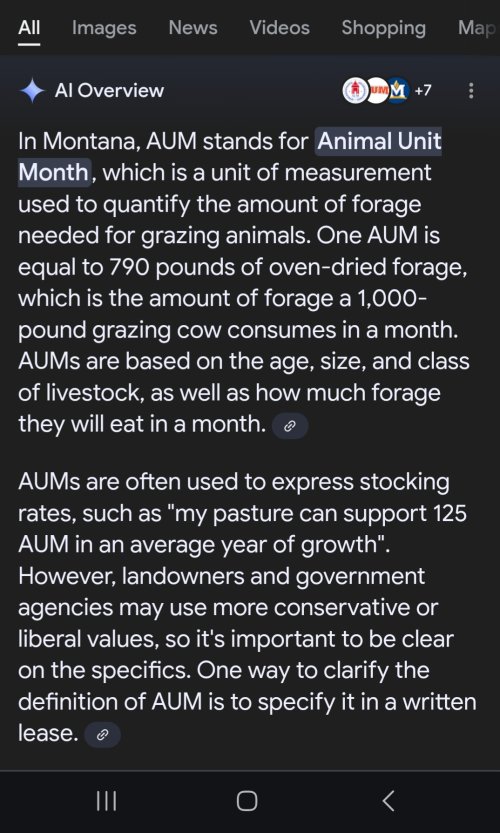The idea of giving half the NR tags to outfitters or making a whole bunch private land only tags is a slippery slope. This would inevitably be negative for the R too. Just watch how fast every acre of private gets locked up and is no longer available to residents. BMA’s become a thing of the past unless it’s piss poor ground and no one will pay for the access or worth outfitter locking it up.
I think the only way to limit without negative consequences is regional quotas.
If the NR are shooting too many MD does, limit the number of NR doe tags. FWP has the ability to tweak the numbers of tags but in order to do it they need to know who is killing what.
So again, this is where the data becomes so critical. Mandatory harvest reports are needed in a bad way.
I think the only way to limit without negative consequences is regional quotas.
If the NR are shooting too many MD does, limit the number of NR doe tags. FWP has the ability to tweak the numbers of tags but in order to do it they need to know who is killing what.
So again, this is where the data becomes so critical. Mandatory harvest reports are needed in a bad way.
Last edited:








